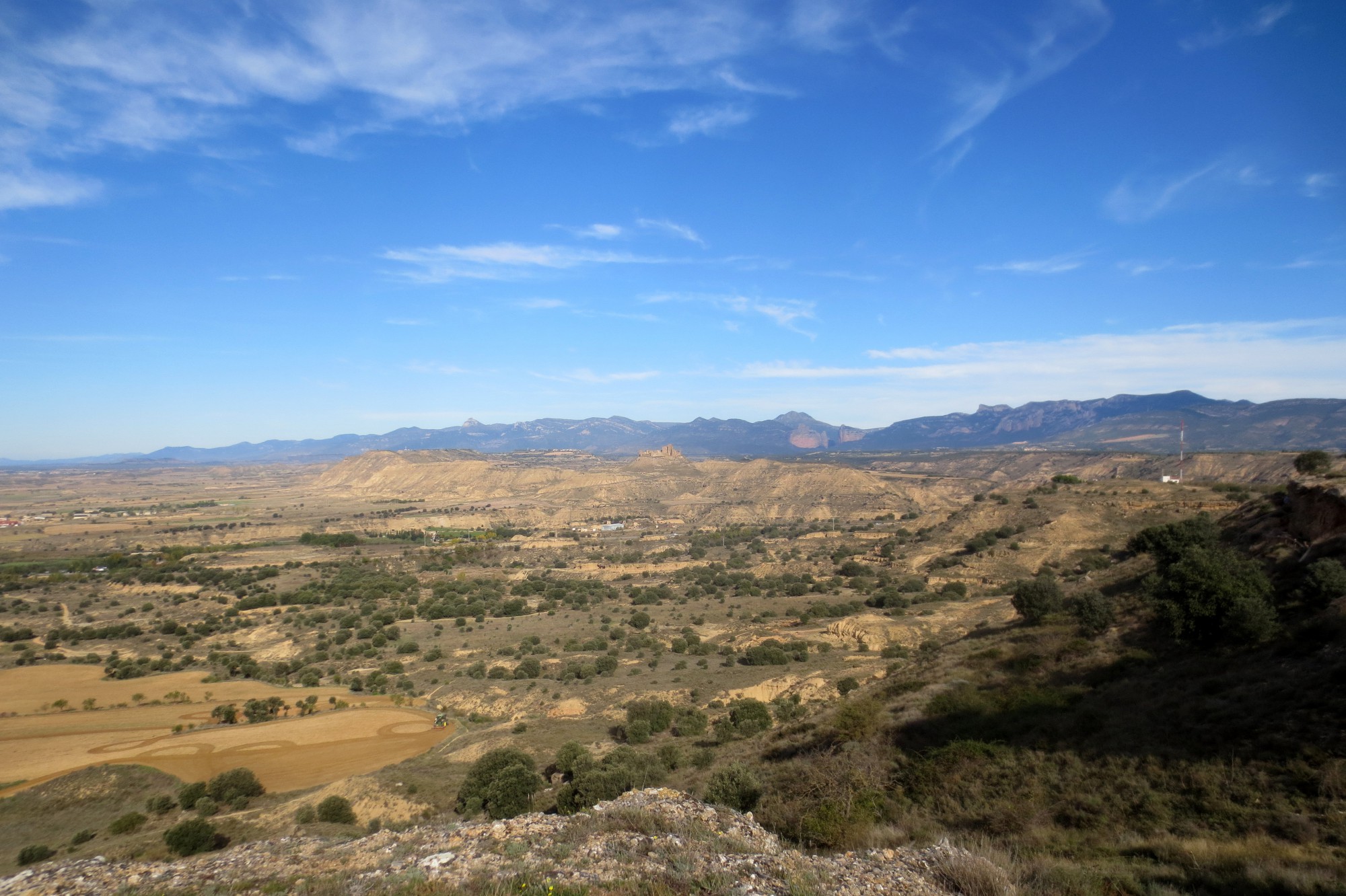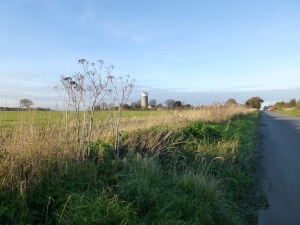This blog is about my visit to Aragon with the International Brigades Memorial Trust. We will be visiting the towns, trenches and mountain-sides that were the Aragon Front in the Spanish Civil War.
In Spain memories are still contested. When Franco was alive, memorials to the Republican dead were forbidden. Then came the era of “Don’t mention the war”, the Pacto de Silencio. And now though memorials can be erected, they are often vandalised in the night so that it is safer to have them inside buildings.
I am Jane Bernal and I am working on a biography of my mother Margot Heinemann. I’m visiting Aragon to see where her lover, fiancé, companero, John Cornford fought when he was first in Spain in September 1936. Writing this blog allows me to practice writing, to try out different ideas, even it does make me sound like Dodie Smith at the beginning of I Capture the Castle.
Margot only visited Spain herself after Franco had gone. The Spain she wrote about was a place she had never seen. She wrote about it, on and off, all her life. We found this poem among her papers when she died in 1992. She must have written it in the last two years of her life. The actor Tilda Swinton read it at her funeral. Ringstead Mill is a house that belonged to the Cornford family where Margot, John and some other friends had a holiday over Christmas 1935. (In 2014 when I wrote this, I believed the poem was written in 1990. It turns out it dates from before 1959, as it is mentioned in some letters between Frances Cornford, John’s mother and Margot at that time. Margot seldom dated letters, which is exasperating for a biographer, but there are some dates in the correspondence. Margot seems to have show the poem to Frances and to no-one else. Frances was not enthusiastic, and perhaps, more importantly, did not understand it. So Margot left it among her papers, where her sister found it over 30 years later).
Ringstead Mill
Stranger whom I once knew well,
Do not haunt this house.
Sorrow’s but a ravelled thread,
To draw back the active dead,
Nor is pleasure mutable
Such as smiled on us.
Stranger whom I once knew well,
Do not haunt this house.
Idle and low spirits can
Take your name and face:
Old green sweater, battered coat,
Coal-black hair and sleeves too short.
Though I know the living man
Finished with this place,
Idle and low spirits can
Take your name and face.
Here we laid foundations where
Never walls were built.
Faded is the fireside glow,
Things we knew or seemed to know
Blown around the empty air,
And the milk is spilt.
Here we laid foundations where
Never walls were built.
And the hard thing to believe
Still is what you said.
With a bullet in the brain,
How can matter think again?
All things that once live and move
Endlessly are dead.
And the hard thing to believe
Still is what you said.
So from these deserted rooms,
Even memory’s past.
As your closely pencilled screed
Grows more faint and hard to read,
So our blueprints and our dreams,
Torn from time are lost.
So from these deserted rooms,
Even memory’s passed.
Mountains that we saw far off,
Sleek with gentle snow,
To the climbers axe reveal
Ice that jars the swinging steel,
Armoured on a holdless cliff
With the clouds below –
Mountains that we saw far off,
Sleek with gentle snow.
Time bears down its heroes all
And the fronts they held.
Yet their charge of change survives
In the changed fight of our lives –
Poisoned fires they never dreamed of
Ring the untended field.
Change is their memorial
Who have changed the world.
Margot Heinemann
1991
© Jane Bernal
As a family we did not do graves much. If people remember us, we said, it should be for our work, our actions, or not at all. For me John Cornford is what he wrote, what Margot & other people told me about him, not whatever remains of his body. It is having the small bones of my hands crushed together by old men who tell me, in voices choked with emotion, that I am beautiful but I will never be as beautiful as my mother. She would often be in the room at the time, when we got home we would laugh about it. We both knew that most of the alleged beauty was because of what we represented, not what we looked like. Finding the actual body never seemed important. With a bullet in the brain, how can matter think again? I have never seen my father’s grave, though it is in Morden, near where I once worked. My cousin and I scattered my mother’s ashes from the summit of Stac Pollaidh. Change is their memorial who have changed the world.
In spite, or because of this, death & dying, commemoration & memorialisation, interest me quite apart from this biography. When I am not being a biographer, I do research into death & dying as they affect people with intellectual disabilities. Loss can be acknowledged or hidden, disenfranchised. Are parents allowed to mourn the death of a disabled daughter or son? Shouldn’t they celebrate a merciful release? How do you mourn a Communist child or parent in a time of fascism? The Spanish victims of Franco, were, to use the jargon, offending deaths and disenfranchised losses. Now they are being exhumed from their unmarked mass graves and re-remembered. If finding John Cornford helps living people in Spain now commemorate their dead, because he was British, the grandson of Charles Darwin, a celebrity so that it increases the pressure on the Spanish Government, I suppose it is the right thing to do. I wonder what he would have wanted, or Margot, but there is no accurate way of predicting what dead people want.
I am off now to meet the living…………


Beautiful. I’m grateful to have read this.
LikeLike
Not so much a comment, more a foot-note. The poem Ringstead Mill was NOT, as I supposed back in 2014, written n the early 1990s but the late 1940s. Margot seldom dated her manuscripts or letters, but a copy of the poem in Margot’s hand writing, and some letters about it from February 1960 were found in the papers of the late Frances Cornford (1886-1950) John Cornford’s mother, and herself a poet. Margot said she never dated poems but thought she had written it in 1949, certainly after 1945 . Poison fires we never dreamed of refers to the Bomb. She sent a copy to Frances, for her eyes only, in the context of a correspondence about Hugh Thomas’s book.
LikeLike
Pingback: 'Ringstead Poems' by Peter Robinson